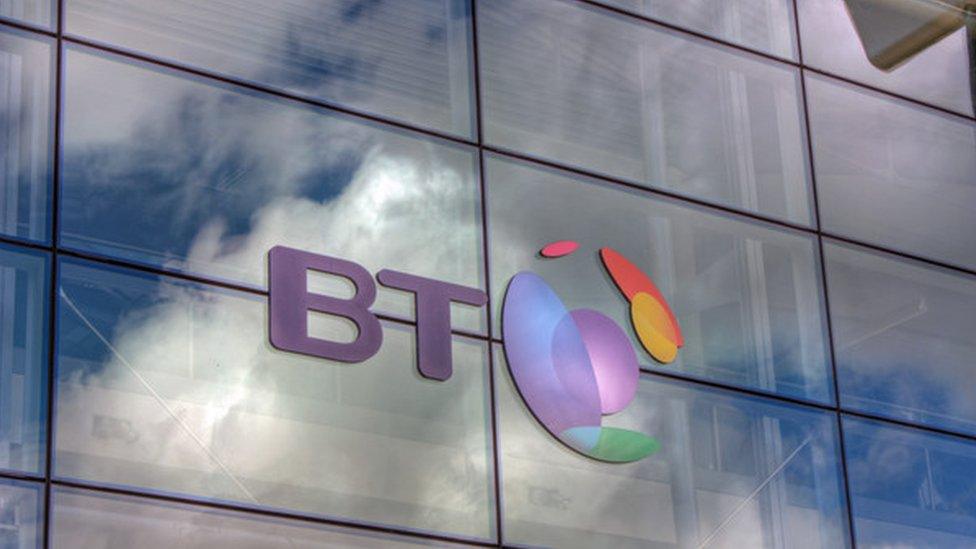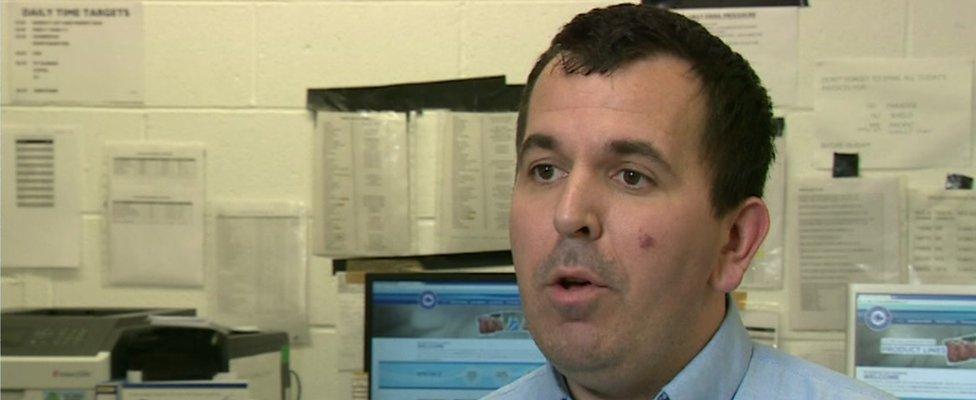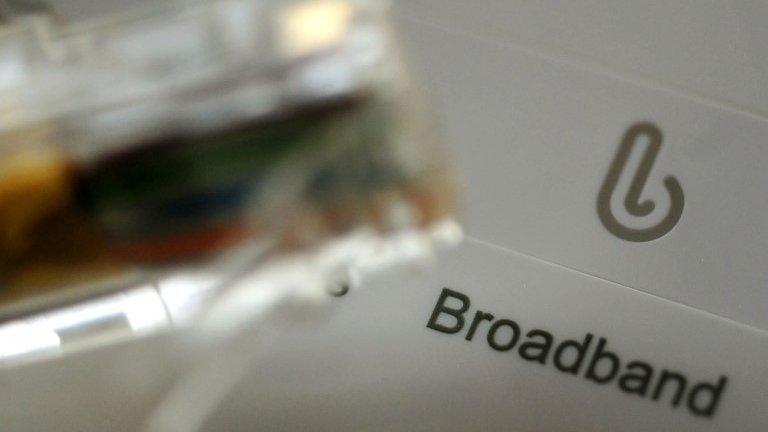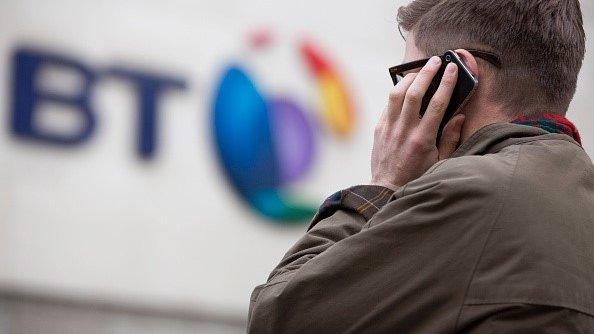BT should be forced to sell Openreach service, report says
- Published

BT should be forced to sell the country's leading broadband provider because of poor performance, a report backed by 121 cross-party MPs has said.
The report, led by ex-Tory chairman Grant Shapps, said BT's Openreach service had only partially extended superfast broadband despite £1.7bn of government money.
It should be sold off to increase competition, the report added.
BT boss Gavin Patterson said that would create "huge uncertainty".
Openreach, a BT subsidiary, operates the main system of cables which connect homes and businesses to the internet.
The report, published by the cross-party British Infrastructure Group (BIG), suggested 400,000 small and medium-sized companies still did not have access to superfast broadband.
More than five million people were receiving unacceptable download speeds, according to the report, entitled "Broadbad"., external
It said "little" would change unless BT and Openreach were formally separated, as at present Openreach "makes vast profits and finds little reason to invest in the network, install new lines or even fix faults in a properly timely manner".
Mr Shapps said underinvestment stemming from the "natural monopoly" of BT and Openreach was holding the UK back and costing the economy £11bn a year.
BIG is a newly-formed grouping of 121 MPs led by Mr Shapps.

'Weaker company'
"We believe that Britain should be leading the world in digital innovation," the MPs said in the report.
"Yet instead we have a monopoly company clinging to outdated copper technology with no proper long-term plan for the future."
But Labour's shadow culture secretary Maria Eagle said the report showed "that the Tory government [was] letting down millions of households and businesses over its rollout of high speed broadband".
"Tory ministers talk a lot about the global race, but as this report makes clear, the UK is now falling behind many of its international competitors when it comes to access to broadband," she added.
Mr Pattison, BT's chief executive, said over 90% of UK premises could access superfast broadband.
Selling off Openreach would "create huge uncertainty and create a weaker company that ultimately could be vulnerable to takeover," he told the BBC.
He added that copper cables were not an outdated technology, with Openreach now testing internet speeds of 500 megabits per second using copper.
An ultra high definition TV picture only requires 30 megabits per second, he said.
Earlier, BT stated: "The idea that there would be more broadband investment if BT's Openreach infrastructure division became independent is wrong-headed."

Case study

Ross Arnold, director of the Stickleback Fish Company, said the firm moved to new premises near Hatfield in Hertfordshire but found the internet speed was "catastrophic".
"We actually couldn't work in the office," he said.
"So then we went about trying to... upgrade that and we didn't actually realise it wasn't as easy as we thought.
"We looked at installing satellites and various radio systems but eventually we had to go back to BT and they had to run an actual lease line from wherever the exchange is to our premises."
He said he was "aghast" to find the cost was "10 times the amount we were paying before".
"You can't do business in 2016 without high-speed internet," he added.

A spokesman for the Department for Culture, Media and Sport said 95% of the UK would have access to superfast broadband by next year, and so the report was "misleading".
The UK government has promised that internet providers will be legally obliged to provide broadband speeds of 10 megabits per second to everyone who wants it by 2020.
In December, Ofcom chief executive Sharon White said it was unacceptable that 2.5 million homes still did not have access to this.
Ofcom completed the first phase of its digital communications review, including a possible sale of Openreach, last summer and is expected to report its recommendations later this year.

BT aiming for 'quad-play'
Openreach accounted for a third of BT's profits in the last financial year.
BT is attempting to diversify through its launch of paid TV and its planned £12.5bn takeover of mobile operator EE.
Mr Pattison said the acquisition of EE, cleared by competition regulators last week, would not further reduce competition.
The deal helps BT with what analysts call "quad-play", where fixed-line phones, broadband, mobile and TV are sold as one package.
Rivals have warned the EE deal will give BT 40% of the UK retail telecoms market.

Openreach 2015 figures
£5bn revenue
£1.2bn operating profit
Accounted for 34% of BT operating profit
32,700 employees
(Source: BT 2015 annual report, external)
- Published1 December 2015

- Published1 December 2015
- Published15 January 2016

- Published16 July 2015
